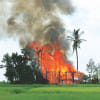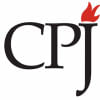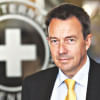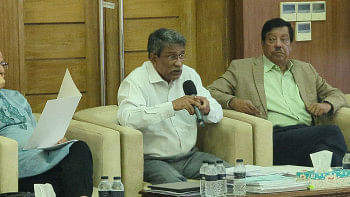WHO lauds Bangladesh support for Rohingyas
WHO Regional Director for South-East Asia Dr Poonam Khetrapal Singh has highly appreciated Bangladesh's all-out support in the full range of care, including good health care, for Rohingya people living here.
In the annual report of the World Health Organisation (WHO) Regional Director, she made special highlights on the sufferings of 1.3 million Rohingya people who took shelter in Cox's Bazar district of Bangladesh.
The report was presented at the 71st Regional Committee Meeting of the Health Ministers of the World Health Organization of the South-East Asia Region that ended on Friday at the Tajmahal Hotel of New Delhi.
A four-member delegation, headed by State Minister of Health and Family Welfare Zahid Maleque, represented Bangladesh at the event that began on September 3, according to a message received from New Delhi.
The other members of Bangladesh delegation are Director General of the Directorate General of Health Services (DGHS) Prof Dr Abul Kalam Azad, Deputy High Commissioner of Bangladesh in New Delhi Rakebul Haque, Private Secretary to the State Minister Arifur Rahman Sheikh and Deputy Program Manager of the National Nutrition Program of DGHS Dr Mafizul Islam Bulbul.
Chaired by Health Minister of India Jagat Prakash Nadda, the meeting was also graced by WHO DG Dr Tedros Adhanom Ghebreyesus.
It was informed in the meeting that Bangladesh will be nominated as Member of the WHO Executive Board at Geneva Headquarters for a three-year period beginning from 2019.
The five-day meeting took important decisions, among others, on elimination of malaria, and control of dengue and other vector-borne diseases from the region, and reviewed the progress on health workforce, universal health coverage, measles elimination, birth and death registration, and promoting physical activity.
An important outcome of the meeting is adoption of the Delhi Declaration for improving access to essential medicines in the region and beyond.
As part of the meeting, a special award was given to Bangladesh for outstanding performances in the control of rubella and congenital rubella syndrome.
WHO DG Dr Tedros, in his speech, also praised Bangladesh's exemplary role for the Rohingya people. He mentioned categorically that such a well-organised and well-coordinated camp healthcare for displaced population was not found anywhere in the world.
State Minister Zahid Maleque held several bilateral meetings. He met, amongst others, Health Minister of India Jagat Prakash Nadda, WHO DG Dr Tedros and WHO Regional Director Dr Poonam Khetrapal Singh.
In his meeting with the WHO DG, he extended invitation to Dr Tedros to visit Bangladesh in his convenient time.
Zahid Maleque sought WHO's assistance to make a sustainable solution to universal health coverage in the country to begin with protecting the population under extreme poverty so that the extreme poor get full healthcare support without need to pay anything.
WHO's immediate assistance is also needed for making the National Drug Control Laboratory with international experts, and for making the public hospitals more efficient and welcoming to the ordinary people.
The State Minister also requested for more opportunities for Bangladeshi nationals to be employed in WHO positions.
Dr Tedros, in response, expressed that he will plan to visit Bangladesh sometime in January 2019 and will visit the Rohingya camps during this visit.
Dr Tedros also promised that he would extend necessary support to make the National Drug Control Laboratory functional and the Bangladeshi public hospitals more people-centered and efficient.
He promised to explore opportunities for absorbing more Bangladeshi nationals in WHO positions; however, he advised to encourage Bangladeshi nationals to submit applications whenever such application is invited for WHO vacancies.

 For all latest news, follow The Daily Star's Google News channel.
For all latest news, follow The Daily Star's Google News channel. 








Comments